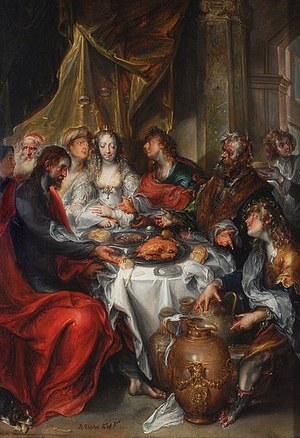
During my mother’s last few weeks, I read to her from the Bible. Picking around, I looked for the most comforting passages. As she slipped in and out of consciousness, I tried reading from the Sermon on the Mount, but it wasn’t helpful. In the end I read mostly from the Gospel according to John, especially where Jesus speaks directly about hope, life, light, and the resurrection.
“In my father’s house, there are many mansions.”
To me, John seems the most “Christian” of all the gospels. By that I mean, if I were a Christian and had to choose only one gospel to survive after an asteroid hit the Earth, I would probably pick John. Yet it has quite a bit missing when you compare it to the Synoptics.
For one thing, like Mark, there’s no nativity story. But we can live without that. It also lacks the parables and exorcisms that litter the landscape in the other three gospels. However, in return we get the so-called “signs,” and we gain the long discourses in which Jesus explains himself.
And we get these verses that I read to my mother, over and over again, as she lay dying:
In my Father’s house are many mansions: if it were not so, I would have told you. I go to prepare a place for you.
And if I go and prepare a place for you, I will come again, and receive you unto myself; that where I am, there ye may be also. (John 14:2-3, KJV)
You could still make a good case for Matthew. With it, we get a family tree and an exciting birth legend. We also get the name of Jesus’ mother, something John omitted. Yes, as odd as it sounds, John never got around to telling us Mary’s name. We know her only by her relationship to men.
Our Blessed Lady of Whoever
She appears to be a woman of some substance, since she commands the servants at the wedding in Cana to “do whatever he tells you.” But she has no identity outside her relationship to her son. Try to imagine Christianity with an anonymous mother of Christ. It’s no easy task. Continue reading ““Say My Name” — Anonymous Women in the Bible”
